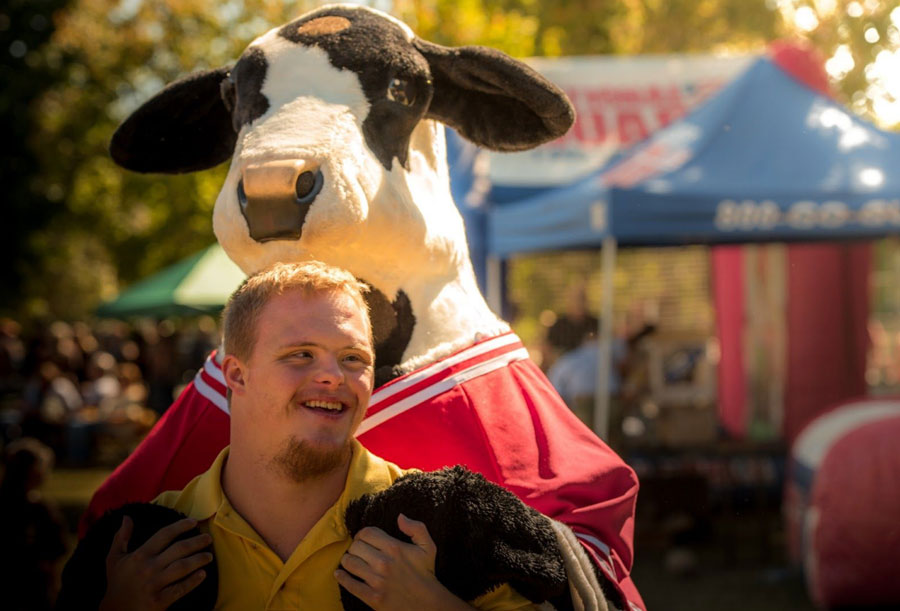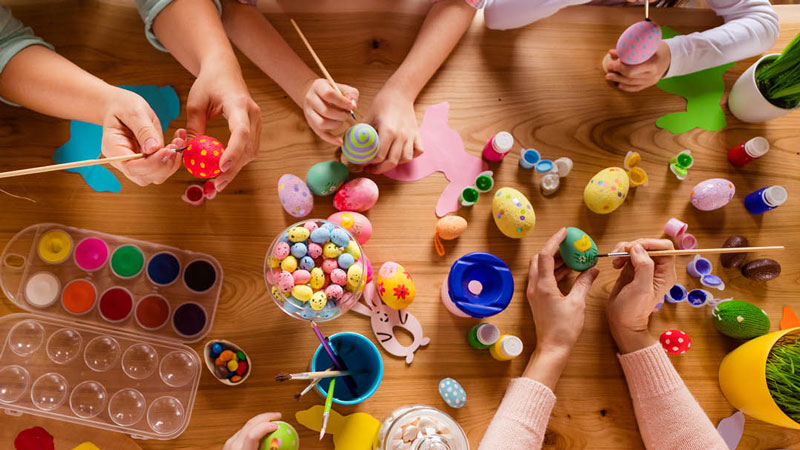10 Inclusive Event Types for a Special Needs Audience
The current Coronavirus pandemic and home lockdown has made most of us mentally readjust to the idea of planning and spending the whole day indoors. People are now finding innovative ways to fill their day with creative activities in lieu of meeting friends and colleagues.
Having said that, social media is also filled with countless anecdotes of how DIFFICULT it is for our jet-set-go generation to stay put in one place!
The only good thing about this situation is that sooner or later it has to end, right? And life will slowly but surely go back to what it used to be or close to it.
But what if you could never go out again...to a party, or drinks with your friends, to a concert, the cinema, an exhibition or even to a family event. And worse, what if you were just NOT able to creatively fill up your hours indoors. Like you were in some perpetual state of “So-what-should-I-do-now?”
What would your life be like?
Well, friends, that is exactly what individuals with special needs go through almost everyday of their lives.
 Many of them are either non-verbal or lack the skills to get accepted at social gatherings. Make no mistake, they too crave meaningful human relationships and social acceptance.
Many of them are either non-verbal or lack the skills to get accepted at social gatherings. Make no mistake, they too crave meaningful human relationships and social acceptance.
If your goal as an event planner is to plan events for these special needs individuals - where they feel comfortable, completely accepted, and maybe even celebrated - then this article is just for you!
Events for special needs
Nearly 1 in 5 children (ages 12-17) have special needs, resulting in more than 1.3 million U.S. young people having a disability (a survey conducted by The National Survey of Children).
Here are some ideas to draw special needs individuals - whether adults or children - into the larger circle of enjoyment, empathy and inclusion.
Here is how you can make them feel loved and cherished!
1. Food fairs and carnivals
Host a theme based on a current festival or 'cuisines from around the world’ theme. Throw in a dress-up competition and see the fun factor escalate.
2. Special sports day
Any form of physical activity is great to incorporate! Try fun activities like hula-hooping, or go the traditional way with mini football games or athletics.
3. Art and craft activities
Give them the canvas and the paints to express their emotions. Remember, art is a form of therapy. Have enough volunteers to help the attendees who have physical limitations in handling the art materials.

4. Outings, treks, and seasonal camps
This one is a no-brainer. Organize a picnic to celebrate good weather or run an overnight camp with a stargazing activity thrown in. Campfires are fun too (please ensure everyone’s safety throughout the events by using plenty of volunteers).
5. Save-the-Environment and other social initiatives
Choose an initiative that has a social impact and take your group along to make it happen. Think tree-planting, or distributing donated items to underprivileged sections of society.
My point here is that special needs people are forever on the receiving end of the spectrum. Imagine how proud they would feel about themselves if they become the GIVERS instead!
6. Host music nights
Ideally in an indoors setting, plan a soft lilting kind of an evening. Harsh loud sounds are not usually suitable for your special guests.
Would you like to also throw the dance floor open? Dancing is another great form of therapy!
7. Theatre productions
Again, preferably done indoors.
Have comfortable seating and view access for all your attendees. Aim to avoid very dim or noisy ambiance.
A basic play staged by volunteers, or a puppet show, or possibly even a ballet are some ideas worth pursuing! Make it a rule that disturbances caused by the audience are perfectly okay! Because this is the main reason why special needs people are not found watching plays and other performances.
8. Meet-and-greet activities
Oh, this is just an informal meeting you could have regularly so that social bonds grow and connections are made; yes, another form of therapy for our health. Families of special needs individuals to appreciate such events.

9. Pet farms/horse riding (animals)
Animals bring out the best in most humans and more so in special needs individuals. According to Medical News Today,
“A pet is a medication without side effects that has so many benefits,” he says. “I can’t always explain it myself, but for years now I’ve seen how instances of having a pet is like an effective drug. It really does help people.”
10. Treasure hunts
Make it easy and make it fun. Let the ’treasure’ be something super exciting and create an amazing hunt!
Quick Planning Event Checklist
Pre-event
- Choose the type and format of the event (and also whether it will be a paid event or completely sponsored event).
- Choose your support team and delegate responsibilities.
- From whom is this event being organized? This will depend on the type of event.
- Choose suitable date options.
- Choose a suitable location and venue keeping in mind the weather and accessibility.
- Advertise via social media or other methods and collect information on possible attendees.
- Choose a suitable menu and a reliable caterer. This again very much depends on the kind of audience you are targeting. You need to keep in mind possible dietary restrictions and eating habits of your attendees.
- Send out invitations and prepare an estimated guest list.
During the event
- Have your volunteers and team members reach the venue well in advance. Keep a suitable ratio of volunteers to attendees, so that they are well looked after.
- Keep first aid kits ready
- Make sure to welcome each attendee with a warm and friendly gesture.
- Hand out a suitable event guide. Make sure the format of the guide is attendee-specific.
- If you are having a sequence of time-based events, ensure there are no delays from your side, as many people with special needs feel uncomfortable or anxious when facing unpredictable situations.
- Do ensure that the lighting and music or ambient sounds at the venue are not over-stimulating to the attendees as they often suffer from sensory overload when confronted with loud sounds, blinding lights, and so on.
- Keep your back-up plans ready for every segment of your program, if ever any part of your program does not roll out as planned.
- Have enough incentives or gifts ready to keep your attendees enthusiastic. (You could approach sponsors for this) .
- Above all, pay maximum attention to the safety of your attendees. Most of them may not be able to protect themselves in an untoward situation!
Post-event
- Send out thank you notes or pics of the event.
- Let your attendees know that their presence made the event a memorable experience for everyone there!
- And tell them that you would LOVE to do it all over again!!
Author: Renuka Tandon
Renuka Tandon stays with her family in Bangalore, India. She is passionate about environmental issues and human relationships. Having a 16 year old daughter who is non verbal and autistic, she understands the trials of all families living with special needs individuals. She dreams of making the world a more accepting, inclusive, and nurturing place for every living being.





